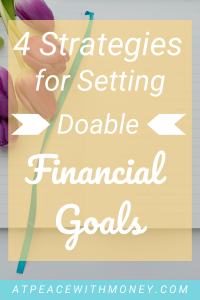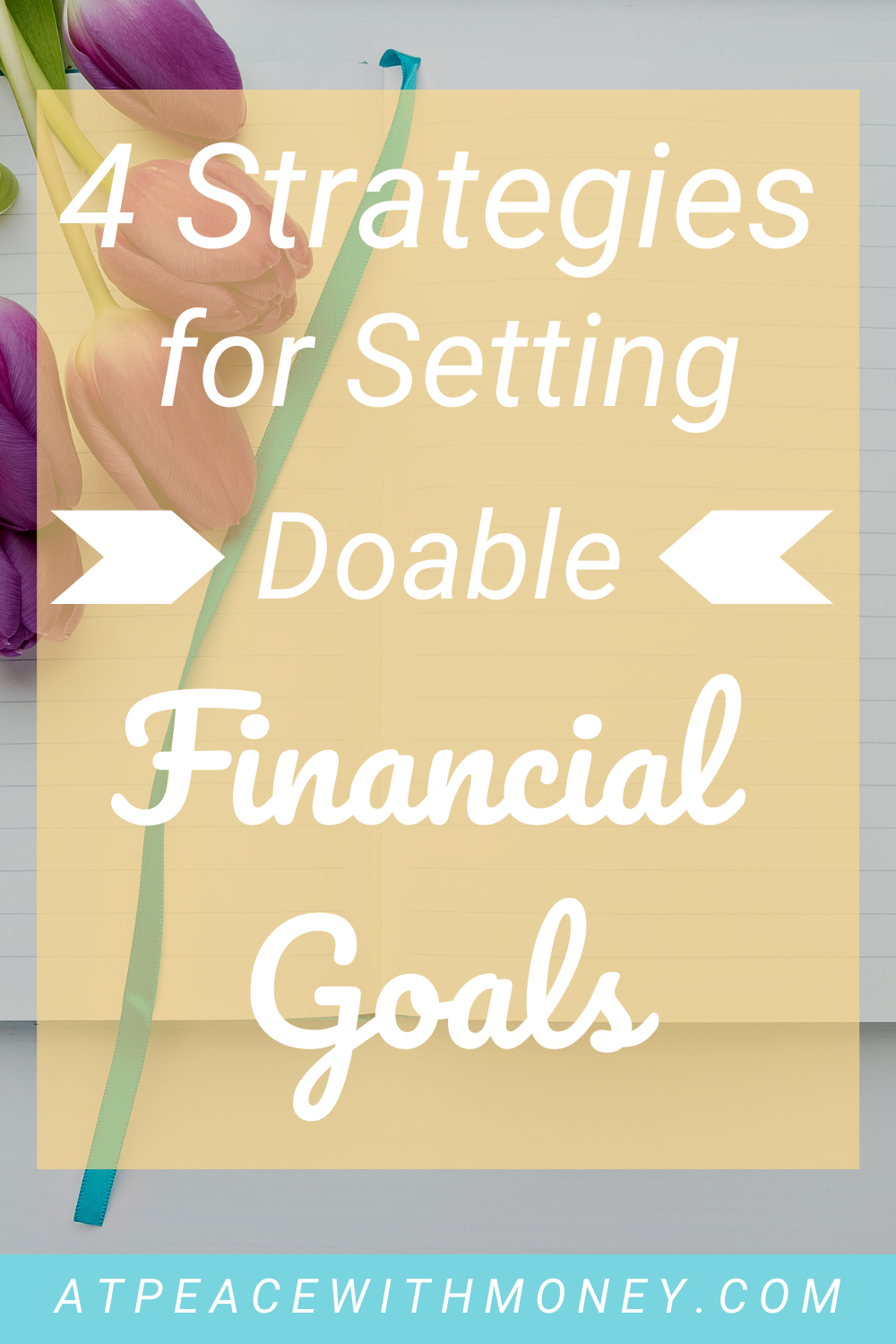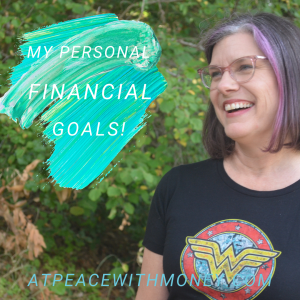How to Set Doable Financial Goals: 4 Tips

If you set financial goals that are way out of your reach, you’re setting yourself up for defeat and disappointment. Rather than curtail your progress with emotional roadblocks, try simplifying your financial goal-setting for this year. These four strategies can help you create goals that are meaningful, motivating, and realistically achievable.
Check in With Your Values
Check in with your values before setting goals. Your business, your finances, and your goals should enable you to have enough of the things you value in your life to feel satisfied. Basing your goals on your values will also give you a clear way to connect with your “money why” and stay motivated when you’re working towards them.
Set One Goal
Set one goal, not a dozen. This will make it easier to manage and complete the goal. James Clear is a great thinker around goal setting, and brings up the psychological concept of goal competition. “…Your goals are competing with one another for your time and attention. Whenever you chase a new goal, you have to pull focus and energy from your other pursuits….What often looks like a problem of goal setting is actually a problem of goal selection.”

When you cull your goals down to one, you’re able to direct all your focus and effort towards this one goal. Of course, I’m speaking about the general realm of your finances. In reality you’ll of course still have a full and complex life – all the more reason to simplify things and pick one financial goal to focus on! Which brings me to the next point:
Identify Your “One Thing”
Identify the thing to do in your finances that would make everything else easier or irrelevant. This is from Gary Keller’s book, The One Thing. This book carries a similar message to what I wrote above: multi-tasking is actually holding you back from making progress on your goals. Using the question “What is the one thing, such that by doing it, everything else would become easier or irrelevant?” can help you further cull your goals and make space in your finances to get focused.
Turn Your Goal Into a System
How will you stay on track with your goal? When setting your financial goal, consider how you’ll turn it into action items, and how you’ll complete those action items. Will you set up a time to make progress each week? Will you find a money buddy to work in tandem with? Will you create a special routine for yourself around checking in with your finances daily?
Carving out regular time to devote effort and attention to your goal is one fo the best ways to actually achieve it. So when setting a goal, keep in mind how likely you are to be able to do this, and how you’ll set up a system for success. If you’d like to work on a financial goal with my guidance, set up a free Financial Self Care Consultation. Click here or below to schedule:
This post was originally published in 2022.


















 The goals that I’m currently leveraging my money system to save up for range from small things to big life events. Last November, I bought a 2016 Rav-4, so one of the goals I’m working on is paying off my car loan. I am also saving up to do a motorcycle tour of New Zealand! Originally I had a target date for this goal, but now things depend on when COVID-19 is no longer an issue, so things are a bit more flexible. You can
The goals that I’m currently leveraging my money system to save up for range from small things to big life events. Last November, I bought a 2016 Rav-4, so one of the goals I’m working on is paying off my car loan. I am also saving up to do a motorcycle tour of New Zealand! Originally I had a target date for this goal, but now things depend on when COVID-19 is no longer an issue, so things are a bit more flexible. You can 


 I also have a flexible schedule as a solopreneur, which meant I could find the time during the week for lessons and rides. And I had the ability to pay for a course, because of my financial savvy in my own business experiences. I find that
I also have a flexible schedule as a solopreneur, which meant I could find the time during the week for lessons and rides. And I had the ability to pay for a course, because of my financial savvy in my own business experiences. I find that 


 business with the mindset that you can learn from all your choices can also help alleviate this.
business with the mindset that you can learn from all your choices can also help alleviate this.